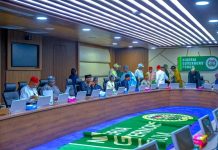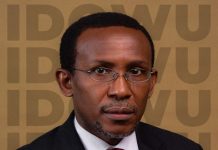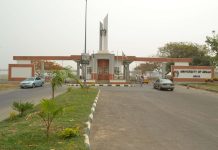Nigeria has reportedly lost the sum of $3bn annually to poor sanitation recorded in the country, arising from the use of unsanitary or shared toilets and open defecation.
This development was disclosed by the Federal Government on Tuesday, as it claims that the country, regrettably among those behind and is off-track concerning progress on achieving the global Sustainable Development Goal.
According to the Minister of Water Resources and Sanitation, Prof. Joseph Utsev, government was working hard to tackle the identified concerns.
Utsev’s affirmation was made in Abuja at the National Workshop on Safely Managed Sanitation.
He said, “The Sustainable Development Goal target 6.2 for sanitation seeks to ‘achieve by 2030, access to adequate and equitable sanitation and hygiene for all and end open defecation, paying special attention to the needs of women and girls and those in vulnerable situations.’
“We acknowledge that access to safely managed sanitation is not just a basic human right, but an essential foundation for social and economic development.
“With only six years to the SDG target date of 2030, progress on achieving the global SDG sanitation target of safely managed services is off-track and regrettably among those furthest behind.”
This came with high disparities in access across wealth quintiles and locations, Utsev added.
He also said, “In Nigeria, only about half of the population (46 per cent) has access to basic sanitation services and about a quarter are practising open defecation, with only 18 per cent of the population having access to safely managed services.
“Achieving the SDG target 6.2 will, therefore, require us to make five times the current progress and triple our investment in the sector.
“The Federal Government is committed to the actualisation of the SDG 6 target for Sanitation and our commitment is motivated by the realisation that it would contribute significantly to the achievement of our national developmental goals and the key priority areas of this government.”
However, food security, ending poverty, economic growth and job creation, as well as inclusivity, were the the priority areas he outlined.


























